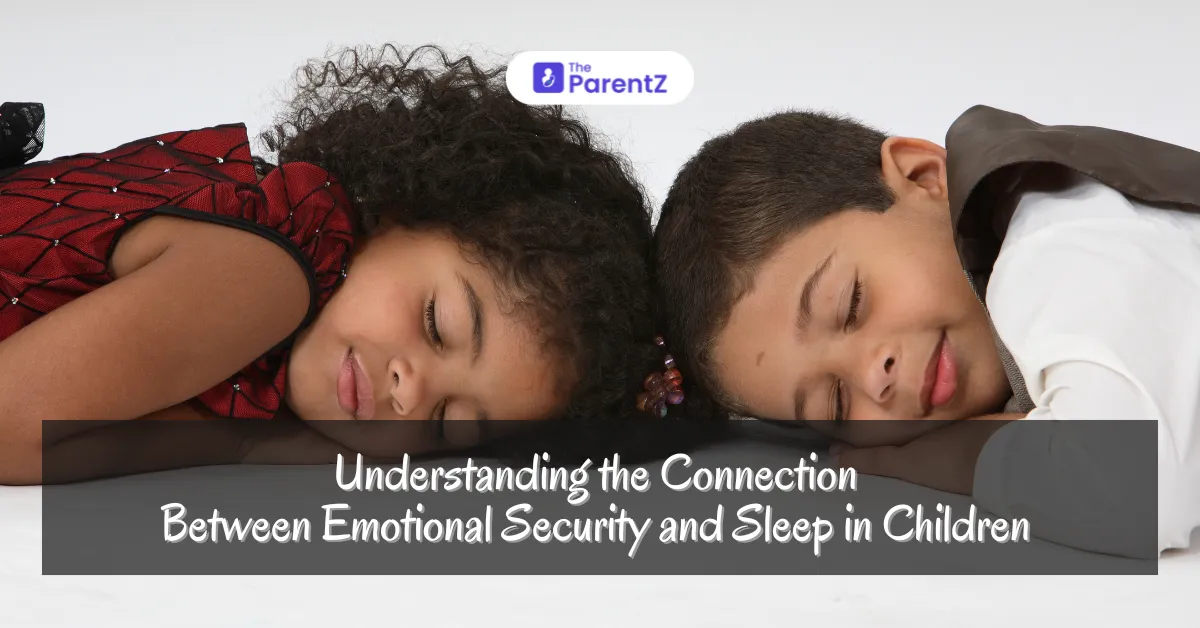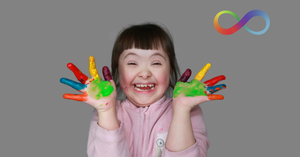Bedtime is more than just tucking your child in. It's a special moment when your child needs to feel completely safe to fall asleep. Think of it like this: falling asleep is like jumping into a pool. Your child needs to feel confident and protected to make that leap. The relationship between emotional security and sleep is a vital aspect of child development that parents must understand. Children’s emotional well-being significantly influences their sleep patterns, and conversely, the quality of their sleep can impact their emotional health.
The Importance of Emotional Security
Emotional security is the feeling of safety and stability that children derive from their relationships with caregivers. This sense of security is primarily established through secure attachment—the emotional bond formed between a child and their primary caregiver. When children feel secure, they explore their environment, take risks, and develop resilience against stressors. Conversely, when they experience insecurity—due to inconsistent caregiving or environmental stressors—they may become anxious and fearful.
Research highlights that securely attached children exhibit fewer behavioral issues and better emotional regulation. They are also more likely to form healthy coping mechanisms when faced with challenges. In contrast, children with insecure attachments often struggle with anxiety, which can manifest as difficulty falling asleep or staying asleep. This connection underscores the importance of nurturing emotional security in children to promote healthy sleep habits.
The Bidirectional Relationship Between Sleep and Emotional Security
The relationship between sleep and emotional security is bidirectional; not only does emotional security affect sleep quality but sleep also plays a crucial role in maintaining emotional well-being.
- Impact of Emotional Security on Sleep: Children who feel emotionally secure are more likely to experience restful sleep. When they know that their caregivers are responsive to their needs, they can relax and fall asleep more easily. Secure attachments foster a sense of trust that allows children to feel safe enough to let go of the day’s worries. On the other hand, children who lack this sense of security may experience heightened anxiety at bedtime, leading to difficulties in falling asleep or frequent awakenings during the night.
- Impact of Sleep on Emotional Security: Adequate sleep is essential for emotional regulation. Sleep deprivation leads to irritability, mood swings, and difficulty concentrating—all of which can hinder a child's ability to maintain healthy relationships with caregivers and peers. When children do not get enough sleep, they may become more emotionally reactive and less capable of managing stress, which can further erode their sense of security.
Psychological Dimensions
From a psychological perspective, the interplay between sleep and emotional security involves several key factors:
- Attachment Theory: According to attachment theory, the quality of attachment relationships influences children's emotional responses and behaviors. Securely attached children typically show better emotional regulation skills because they have learned that they can rely on their caregivers for support. This reliability fosters a sense of safety that promotes better sleep patterns.
- Anxiety and Sleep Disturbances: Research indicates that anxiety is a huge predictor of sleep disturbances in children. When children experience anxiety—whether from school, social situations, or family issues—they may struggle to relax at bedtime. This difficulty can lead to insomnia or disrupted sleep cycles, creating a cycle where poor sleep exacerbates anxiety symptoms.
- Coping Mechanisms: Children who feel secure are better equipped to develop effective coping strategies for managing stress. These coping mechanisms can include relaxation techniques that promote better sleep hygiene. For example, teaching children deep breathing exercises or mindfulness practices can help them calm their minds before bed.
Practical Strategies for Parents
To enhance emotional security and improve sleep in children, parents can implement specific strategies:
- Consistent Bedtime Routines: Establish a calming pre-sleep routine that includes activities like reading or gentle conversations about the day. This predictability fosters a sense of safety.
- Coping Thoughts Development: Teach children to create positive affirmations or coping thoughts, such as “I am safe and loved,” to counter bedtime anxieties and promote relaxation.
- Safe Place Imagery: Encourage children to visualize a comforting place associated with feelings of safety and calmness before sleep, helping them access their safety system.
- Diaphragmatic Breathing Exercises: Introduce breathing techniques that focus on deep, slow breaths to help children relax physically and mentally, preparing them for restful sleep.
Conclusion
Understanding the connection between emotional security and sleep is crucial for parents aiming to support their children's development effectively. Helping your child feel safe at bedtime is like building a trust bridge. Each night, you're showing them the world is a good place to rest.








Be the first one to comment on this story.